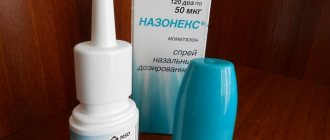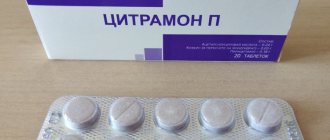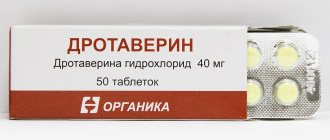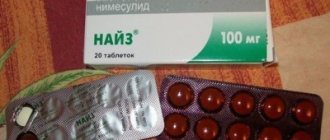You can often hear expectant mothers arguing about the importance of using Riboxin during pregnancy. You must understand that the doctor will not prescribe medications unless absolutely necessary. The active substance Riboxin is able to penetrate the placenta, but does not cause negative reactions in the body of a woman and child. Often the medicine is used to stimulate the growth of fetal muscle mass, strengthen the skeletal system, and the proper development of the musculoskeletal frame. Experts say that Riboxin, both in tablets and in injection form, is an absolutely safe and necessary remedy.
Use of Riboxin during pregnancy
The main properties of Riboxin are considered to be the normalization of metabolic processes in tissues, improvement of cellular respiration and blood thinning.
In addition, the drug has an antiarrhythmic effect, normalizing the heart rhythm. It also promotes rapid healing of the gastrointestinal mucosa and myocardial tissue.
The drug also has a therapeutic effect on liver cells. It improves metabolic processes in them, as a result of which the affected liver cells are restored faster.
The presented medication during pregnancy is prescribed for hepatitis, as a prevention of fetal hypoxia in case of disturbances of placental blood flow (together with Curantil/Actovegin and Magne B6).
For expectant mothers with heart problems, it is worth taking the drug before and during labor. Thanks to this, it is possible to maintain the operation of the “engine”, since during childbirth a large load is placed on it.
Interaction with other drugs
Riboxin should not be used together with drugs that normalize heart rhythm, inotropic agents and medications for sore throat. This enhances the therapeutic effect of the latter, which can negatively affect the body as a whole. You should not use Riboxin with antidepressants and vitamin B6, as the effectiveness of the treatment is lost. Intravenous and drip administration together with alkaloids and some medications is prohibited.
How to take the drug and in what dosage?
The instructions for the drug state that Riboxin should be taken 1 tablet 3 times a day (before meals!). If there are no adverse reactions, you can take up to 4 times a day. It is recommended to increase the dosage (if necessary) on the 3rd or 4th day from the start of treatment.
The duration of therapy can only be determined by a doctor. As a rule, it does not exceed 4-6 weeks.
Riboxin is also produced in the form of a solution for injection. The medicine is administered intravenously. The injection process can occur in a stream or drip (40-60 drops per minute). Injection of the drug should be done very slowly.
In the first days of treatment, 10 ml of solution is administered once a day. If there are no side effects after this, it means that the expectant mother’s body tolerates all the components of this medicine well. Consequently, the dose can be increased, and the doctor prescribes the drug in an amount of 20 ml 1-2 times a day for 10-15 days.
If Riboxin is administered by drip, then first dilute it with a solution of 5% glucose or 0.9% sodium chloride.
What can be replaced
Analogues of the drug include:
- Vero-Riboxin is a metabolic agent that is produced in the form of capsules, tablets and solution for injections.
- Inosine – has antiarrhythmic, metabolic, antihypoxic effects. Used to restore metabolic processes in cardiovascular and other diseases.
- Riboxin Bufus is available in the form of ampoules with a solution for injection. Prescribed for the treatment and prevention of coronary heart disease, after myocardial infarction, and liver pathologies.
- Riboxin-Darnitsa is another widely used analogue, which can be found in the form of capsules and tablets for oral administration, as well as in ampoules.
- Ribonosine - improves metabolic processes, restores coronary circulation, participates in glucose metabolism, improves nutrition of areas of the myocardium that have succumbed to ischemia.
Each of the analogues has its own contraindications. Treatment with their help is recommended only after consultation with a specialist.
When should you not take Riboxin?
The manufacturer indicated in the instructions that taking Riboxin during pregnancy is contraindicated. This is based on the fact that no experiments have been carried out on pregnant women. Although experiments on animals have shown that the components of the drug are not able to have a negative effect on the fetus.
The drug has been used in domestic obstetrics for quite a long time as a prevention of fetal hypoxia, and no disturbances in embryonic development have been noted due to the use of Riboxin.
The drug is contraindicated during pregnancy with the following pathologies:
- gout;
- high levels of uric acid in the blood;
- individual intolerance to individual components.
It is recommended that women with renal failure and diabetes mellitus take the drug with caution.
Side effects and contraindications
As a rule, Riboxin is well tolerated by pregnant women and does not cause negative consequences. Cases of allergic skin reactions (itching, redness, urticaria, Quincke's edema, eczema) have been reported extremely rarely. Mild reactions that do not cause discomfort and quickly resolve on their own do not require discontinuation of the drug. Otherwise, the occurrence of allergies and intolerance to the drug is a reason to consult a doctor and select another drug.
A contraindication for use is considered to be sensitivity to inosine, which is rare, but does occur. High levels of uric acid in the blood, gout, and kidney failure are also reasons to refuse the medication. It is important to remember that severe kidney damage prevents the elimination of the active substance of the drug, causing serious complications. In case of gout, inosine will further increase the concentration of urea and aggravate the course of the disease.
Possible side effects from taking Riboxin
If you are intolerant to the components of the drug, itching and redness of the skin may occur in a pregnant woman. With prolonged use of the medication, the signs of gout may worsen and the levels of uric acid in the blood plasma may increase (these indicators should be monitored by periodically conducting blood and urine tests). However, these negative aspects do not affect the baby’s health at all.
If side effects occur, you should stop taking the drug.
There have been no cases of overdose with this medicine!
Analogues of the drug Riboxin
Like any drug, Riboxin has a number of analogues produced by different manufacturers:
- Riboxin-LecT;
- Riboxin-Bufus;
- Riboxin-Darnitsa;
- Riboxin-Vial.
In case of intolerance to the components of the medication, the doctor may prescribe other medications with a similar effect:
- Chime;
- Sodium adenosine triphosphate;
- Cytoflavin.
Medicines prescribed for pregnant women - table
| Drug name | Active substance | Release form | Contraindications | Use during pregnancy |
| Chime | dipyridamole | film-coated tablets |
| Use is possible only according to the doctor's decision. During pregnancy, it is prescribed for diagnosed fetal hypoxia. |
| Sodium adenosine triphosphate | triphosadenine (sodium adenosine triphosphate) | solution for intravenous administration |
| |
| Cytoflavin |
|
| hypersensitivity to the components of the drug. | If necessary, it is possible to use the drug during pregnancy, but there are no clinical data on the effectiveness and safety of Cytoflavin in this category of patients. |
Riboxin analogues and other drugs with similar effects - photo gallery
Riboxin, produced by Tyumen Chemical-Pharmaceutical class=”aligncenter” width=”728″ height=”497″[/img] Riboxin-Darnitsa - a drug from Ukraine
Riboxin-Bufus is a drug from a manufacturing pharmaceutical company Update
Curantil is a drug that is used to normalize blood circulation and restore the immune system
Riboxin from the Vial company, which produces medicines for Korea, Russia and Ukraine
Sodium adenosine triphosphate is a metabolic agent that has a positive effect on the functioning of the heart muscle
Cytoflavin is a drug that improves brain metabolism
Reviews from doctors and pregnant women
If we take into account the reviews of experienced obstetricians and gynecologists who actively use the drug in their medical practice, they are very positive. When taking Riboxin, it is possible to maintain the baby’s condition during intrauterine fetal hypoxia.
There are rare cases when expectant mothers may experience side effects such as itchy skin and hives. But all these side effects disappear very quickly after stopping the drug.
Svetlana: “When I was pregnant, the doctor prescribed me Riboxin. The first time I didn’t agree, because I read on the Internet that Riboxin is contraindicated during pregnancy, and I didn’t even understand why Riboxin was prescribed. But the second time I decided not to refuse and try. The doctor explained to me that this does not have any negative impact on the child’s health. As a result of the treatment, my baby’s condition improved, his CTG improved, and a few months later, according to the results of the next ultrasound, hypoxia was not confirmed. Now I want to tell pregnant women not to be afraid of this medicine, since I have learned from my own experience that it is safe, and sometimes even simply irreplaceable.”
Irina: “I was pregnant many years ago. Then I couldn’t even imagine that Riboxin should not be used while pregnant. I was not afraid of anything and took the medication as prescribed by the doctor. I didn’t experience any side effects, and the baby was born absolutely healthy.”
Indications during pregnancy
Many women are interested in the question of why Riboxin is prescribed during pregnancy and whether this drug is safe for the fetus. This is not surprising, because many medications are prohibited during this period, as they can provoke undesirable consequences, including premature birth. Clinical studies have shown that the drug in therapeutic doses does not pose any threat to mother and child. Riboxin for pregnant women is used strictly as prescribed by a doctor.
During pregnancy, the medicine is used only as prescribed by a doctor.
Indications for use of the drug are as follows:
- coronary heart disease, including heart rhythm disturbances, coronary insufficiency, myocardial infarction;
- changes in heart rate caused by taking cardiac glycosides;
- pathological changes in myocardial tissue;
- heart defects;
- open-angle glaucoma;
- liver pathologies, including hepatitis;
- severe forms of placental insufficiency;
- fetal hypoxia;
- atherosclerosis;
- dysfunction of the endocrine system due to depletion of the heart muscle against the background of various pathologies.
In addition, the drug is indicated for pregnant women with a sedentary lifestyle, rapid weight gain, poor diet, and impaired renal function. For smoking women, tablets are prescribed to prevent various defects in the fetus.
Riboxin helps reduce the manifestations of toxicosis, as it helps to establish metabolic processes and remove harmful breakdown products from the body.
Important! In most cases, the medicine is used as a prophylactic during the delicate period.










